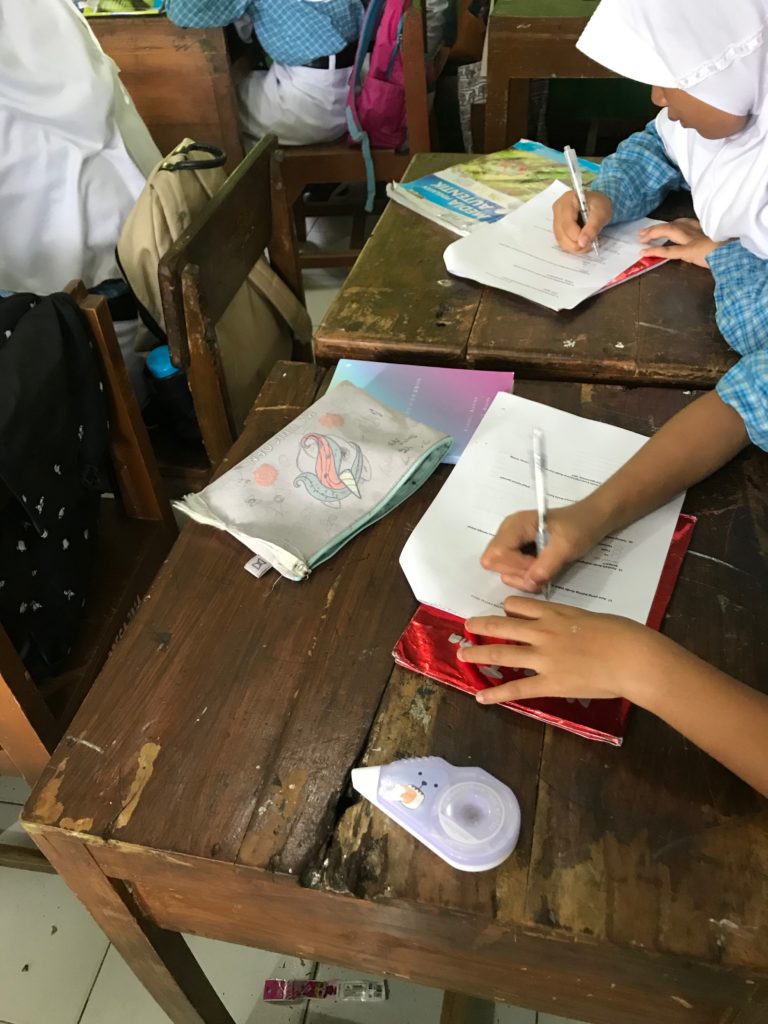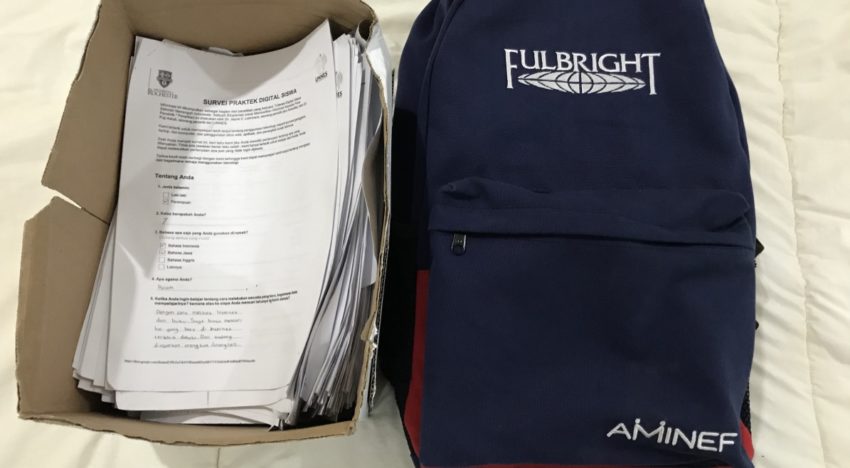I am thrilled to be able to report that last week, Puji and I began collecting data for our research project: The Digital Literacies of Indonesian Secondary Students: An Exploration to Inform Their Educators.
After many delays, we were able to get into two junior high schools and one senior high school on Thursday and Saturday – 9 classrooms in total across all 6 secondary grade levels – to recruit student participants and to collect survey responses. Through our Fulbright-funded partnership, we hope to learn more about what apps, platforms, websites, programs, and technologies secondary students in Central Java use. Our survey asks questions about how and why they engage in digital literacies for school-related purposes and for their personal interests. We ask what they like and don’t about social media, where they go to learn something new, how they learn about new apps and technologies, and what they wish they knew more about in terms of technology. And, as can be heard in this two-minute audio clip of my recruitment conversation in an 8th grade classroom, the kids got a kick out of hearing that I know about Tik Tok and they were intrigued by the idea of video games being thought of as “really well designed learning environment.” Their reactions are priceless! I told them that they were helping us inform their “gurus” and the “gurus of the gurus.”

Participants had the option to work with a survey written in English (which a few chose) or in bahasa Indonesia, and they were informed that they could write responses in either or both languages. While we had the option available for students to complete the survey electronically using their phones, none of the participants in the senior high school (the only setting where students had phones readily available with them) chose that option. The survey was considered “a bit long” by one of our pilot study participants, and at 35 questions, I don’t disagree with her. But, overwhelmingly, our participants seemed to take great care in responding. Many, as seen here, pulled out their white out tape to correct answers and ensure that their responses reflected their intentions.

As we explain in our recruitment and consent materials, participants likely receive no benefit from contributing to this research. They receive no gifts or snacks or stipends for participating. To provide even a small measure of reciprocity, we used time after students completed their surveys for English conversation. It was a chance for me to learn from them, as in when this 12th grade girl told me about her travels abroad, and for them to learn from me as they worked up the courage to ask me all kinds of questions, including: What is my favorite food in Indonesia? What do I think of Indonesia and its people? How old am I? What differences do I see between Indonesian students and American students? Where have I traveled in Indonesia for tourism?
It was a true joy to be surrounded by kids! I thanked participants repeatedly for the gift of their responses and the help they were offering us. Earlier today I started entering their responses into our online data management system, and not do I enjoy reading their responses, it’s helping me practice and learn more bahasa Indonesia as I type and translate responses. I’m grateful that this phase of my Fulbright experience has finally begun!
